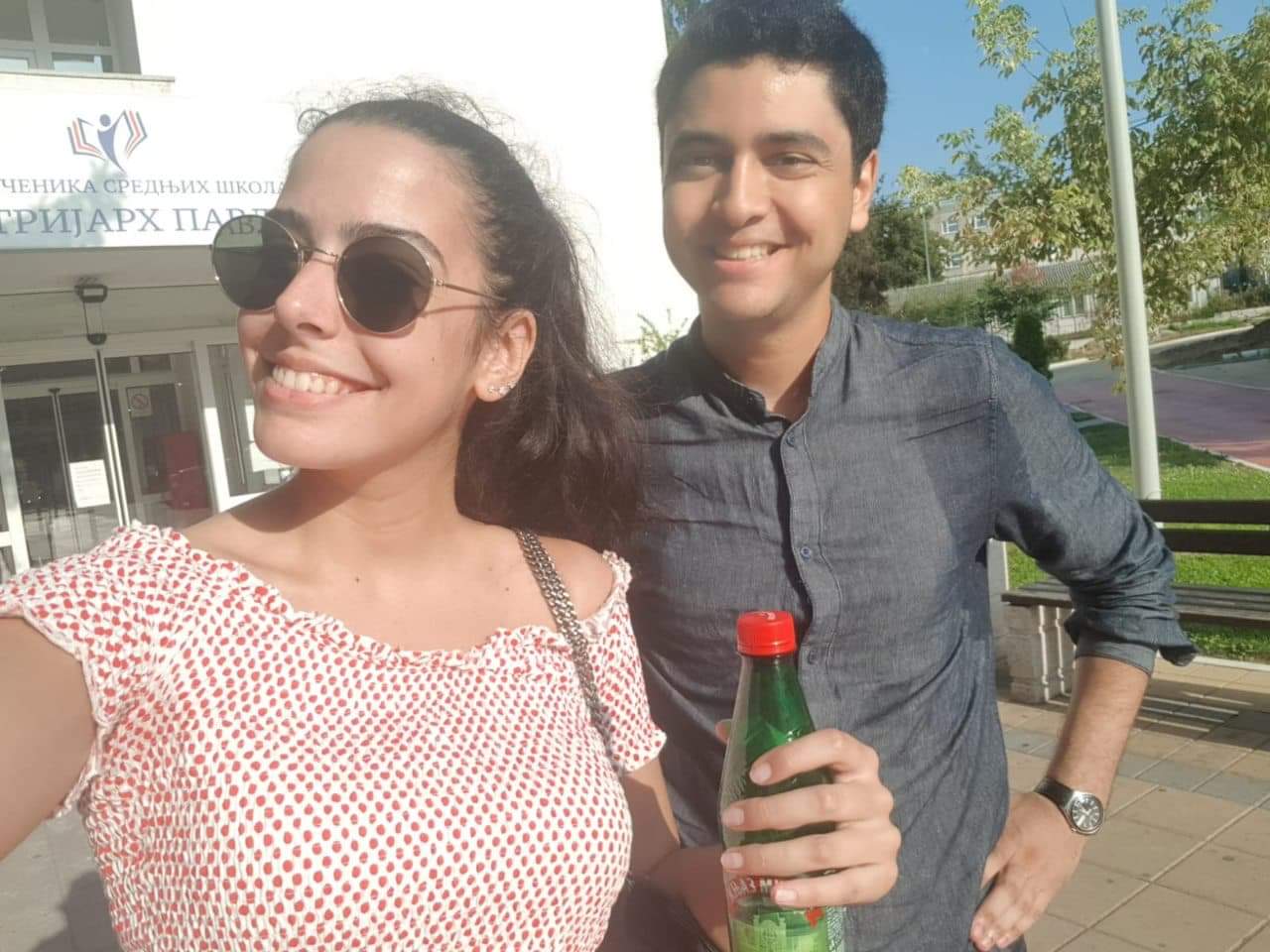Othmane's Diaries: Working weekdays, getaway at weekends
When work is pleasant
My stay in Tuzla lasted longer than expected. I have to admit that I am the kind of person who easily feels uncomfortable at some point, when staying at someone’s place – particularly if this someone is newly met. But to be fair, my different hosts (Ali and Haris, but also Ajdin Nakičević) have been remarkably welcoming, and importantly enough, I am glad that this allows me to almost exclusively hang out with locals. After all, I came to Bosnia and Herzegovina to meet Bosnians.
Moreover, time flies when you have a busy routine on weekdays. Vildana and I continued working on the marketing plan for the Futures Makerspace’s first workshops, and thinking about ways to implement courses that meet the needs of the youth in Srebrenica. Along with two very active scholarship recipients from the Foundation, Muhamed Isabegović and Almedin Beganović, we eventually managed to establish a schedule for the various teaching modules (programming, design and business) that the Futures Makerspace will be offering as of early September. I also helped Ali with some of his administrative tasks for the Foundation, especially when it comes to recruiting new volunteers.
Weekends were for getaways. Three Saturdays ago, I was invited to an international event organized by IAESTE in Banja Luka, and that was my first encounter with Bosnian trains. I found out that there were two separate railway companies, one for the Federation and one for Republika Srpska, which was very surprising to me as even our Belgian neighbors are not this decentralized; I therefore had to switch trains in Doboj, the largest national railway junction. Due to a friend’s inaccurate instructions (if you’re reading this, don’t worry, I won’t mention your name!) I missed the once-a-day, modern Talgo train that I intended to take from Doboj to Banja Luka, so I had to settle for the old-school one that stops every five minutes. Not only was I able to take the time to appreciate the beautiful scenery on the way, but also to reflect on the crucial role that transportation can play in a country’s national cohesion. When you add to Bosnia and Herzegovina’s difficult, mountainous geography, the lack of funds and political disagreements between the Entities composing it, you end up with a small-sized, yet spatially fragmented country. Distances are amplified and transregional mobility (which entails members of different cultural communities visiting each other’s towns and cities, sense of national belonging, etc.) is reduced.
It was great to see my Banja Luka friends again, Vildana, the AIESEC crew and others. Nikola made us a memorable traditional lamb dish, before we discussed some future Foundation assignments, then went to the international gathering. It was about interns from all over Europe and beyond, sharing stories about their experience in Bosnia and bringing foods and drinks from their home countries. The next day Nevzudin and I went to a gulash contest to assist a friend of his, Lazar Petrović, who was participating (and of course, to have our fair share of gulash). The contest was taking place in a very pleasant, sunny atmosphere by the Vrbas river, where a dajak (typical Banja Luka boat) competition was happening. Lazar, who actually puts dark chocolate in his gulash*, suggested me to come that evening to a concert that he was directing. I went with a friend from the Foundation, Ivana Čulić, and it was one awesome, unexpected Sunday party.
I then spent the next days preparing for an article that I am planning to write about the (geo)political factors preventing Srebrenica’s development. This turned out to be pretty challenging in the sense that most scientific and press material that I found (when searching in English and French) was either directly or indirectly about the 1995 massacre, rarely about the current social situation. Thankfully I can rely on one of Vildana’s closest friends, Nikolina Kunić, who is a PhD candidate in international relations in Turkey, to give me some more relevant insights.
Arriving in Belgrade
The following weekend, I had to go to Belgrade as an obligation – but well, a nice obligation though. Indeed, as a foreign national, I cannot spend more than thirty continuous days in Bosnia and Herzegovina, so I had to exit the country to reset my right to stay. Nikola connected me to two ladies from AIESEC Belgrade, Tamara Ilić and Tamara Grbić, who very kindly guided me and handled my trip to the large Serbian capital. Another local AIESECer, Marko Belojević, even invited me to his birthday party as soon as I arrived!
Outgoing people, a vibrant culture scene, and a modern urban feel – Belgrade definitely stood up to its reputation, but it was time for me to go back to more familiar Tuzla, where a heartwarming Bajram evening with Haris’s family was awaiting me. What could be better.
Written by: Othmane Tabit (Osman Tabić / Осман Табић)
*If, like me, you haven’t heard of this recipe before, I recommend you try it at home, you’ll be pleasantly surprised.


